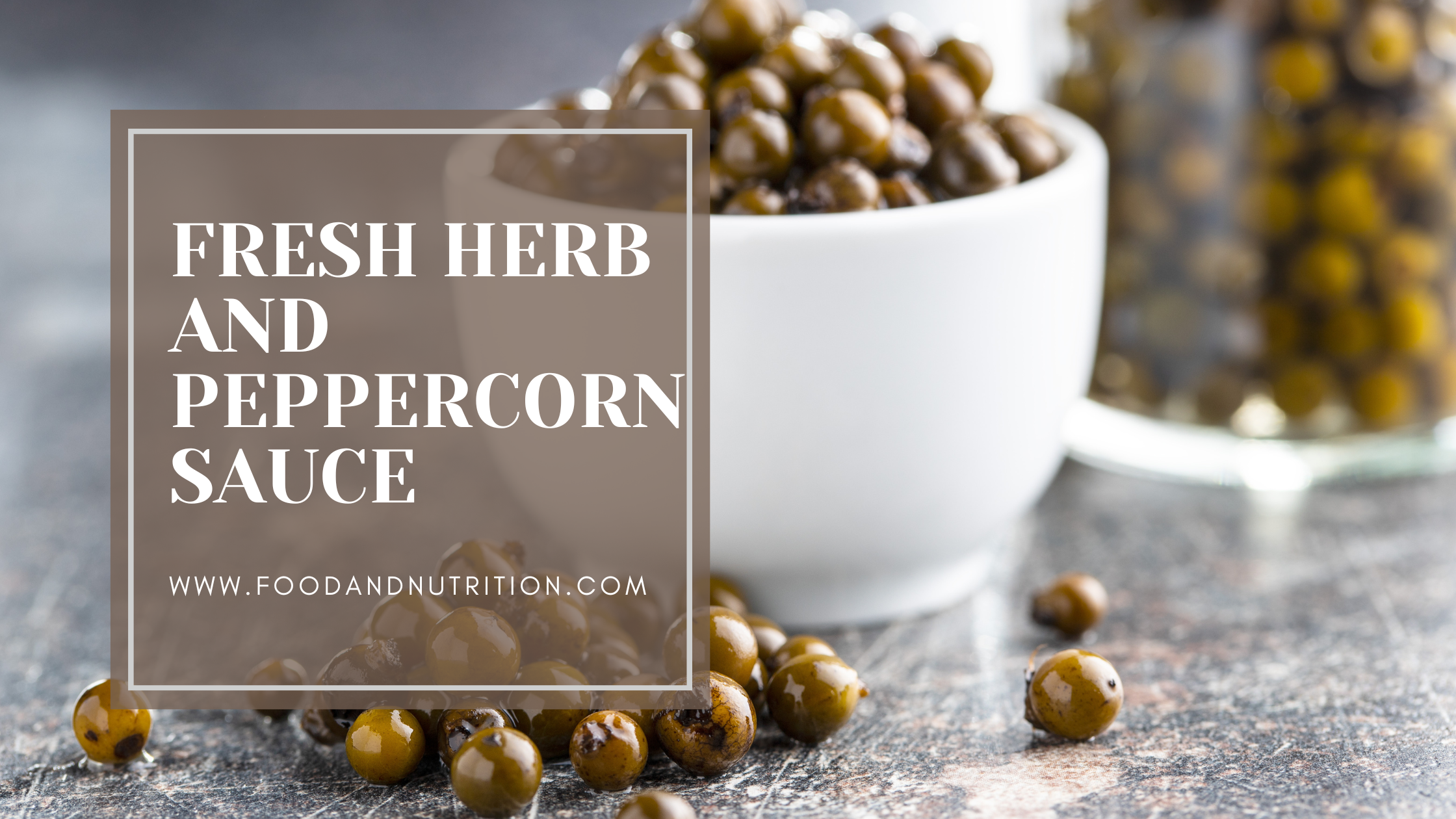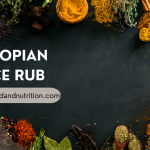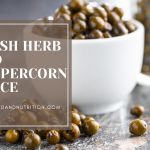Fresh Herb and Peppercorn Sauce: Elevate Your Meals with a Symphony of Aromas and Flavors

Fresh Herb and Peppercorn Sauce is a culinary masterpiece that has stood the test of time. This delectable sauce is renowned for its vibrant flavors, rich history, and versatility. Bursting with the aromas of fresh herbs and the zing of peppercorns, it has become a popular favorite among food enthusiasts around the world. In this blog post, we will dive into the captivating history, explore the reasons behind its popularity, discuss the common ingredients, highlight its nutritional benefits, and provide inspiring serving ideas for this delightful sauce.
The History and Cultural Significance
Fresh Herb and Peppercorn Sauce has a long and storied history that dates back centuries. The use of herbs and peppercorns in culinary creations can be traced to ancient civilizations such as the Egyptians, Greeks, and Romans, who recognized their aromatic and medicinal properties. These ingredients were highly valued for their ability to enhance the flavor of dishes and promote digestive health.
Over time, the combination of fresh herbs and peppercorns evolved into a sauce that has become a staple in many culinary traditions. From French cuisine to Mediterranean delights, this sauce has found its way into countless recipes, elevating the taste of various dishes. Its versatility and ability to enhance a wide range of flavors have contributed to its enduring popularity.
Why Fresh Herb and Peppercorn Sauce is Popular
The popularity of Fresh Herb and Peppercorn Sauce can be attributed to several factors. Firstly, its robust and well-balanced flavor profile appeals to a wide range of taste preferences. The fresh herbs lend a refreshing and aromatic note, while the peppercorns add a delightful kick. This combination creates a harmonious symphony of flavors that tantalizes the taste buds.
Furthermore, the sauce’s versatility is another reason behind its popularity. It serves as an excellent accompaniment to a variety of dishes, including grilled meats, roasted vegetables, salads, and even seafood. Its ability to complement and enhance the natural flavors of different ingredients makes it a go-to choice for chefs and home cooks alike.
Common Ingredients
The key ingredients that bring the Fresh Herb and Peppercorn Sauce to life are cumin seeds, green peppercorns, fresh herbs (such as parsley, mint, chives, cilantro, etc.), and lemon-steeped olive oil. Each ingredient plays a crucial role in the overall flavor profile and uniqueness of the sauce. The cumin seeds provide a warm and earthy undertone, while the green peppercorns contribute a tangy and slightly spicy element. The medley of fresh herbs infuses the sauce with freshness and herbaceousness, while the lemon-steeped olive oil adds a citrusy twist.
FRESH HERB AND PEPPERCORN SAUCE
Ingredients
- 2 teaspoons cumin seeds
- 1 tablespoon green peppercorns in brine — drained and rinsed
- 1 cup fresh herbs parsley, mint, chives, cilantro, etc
- 3 tablespoons lemon-steeped olive oil
Instructions
- Start by crushing the cumin seeds using a mortar and pestle. Add the rinsed peppercorns and break them up slightly.
- Wash and clean the fresh herbs, such as parsley, mint, chives, and cilantro.
- Place the herbs in a food processor along with the crushed cumin seeds, peppercorns, and lemon-steeped olive oil.
- Process the mixture until the herbs are finely chopped and well incorporated.
- Season the sauce to taste, and then chill it until you’re ready to serve.
- Enjoy the delightful flavors of this Fresh Herb and Peppercorn Sauce as a complement to your favorite dishes.
Notes
Nutritional Benefits
Apart from its incredible taste, Fresh Herb and Peppercorn Sauce also offers notable nutritional benefits. The herbs used in the sauce are rich in essential vitamins, minerals, and antioxidants. Parsley, for instance, is a great source of vitamin K and vitamin C, while cilantro contains high levels of vitamin A and potassium. Mint provides digestive benefits and has a calming effect on the body. These herbs collectively contribute to a nutrient-dense sauce that not only enhances flavors but also provides a boost of health-promoting compounds.

Serving Ideas
Fresh Herb and Peppercorn Sauce can elevate a multitude of dishes, transforming them into culinary masterpieces. Here are a few serving ideas to inspire your culinary adventures:
- Grilled Steak with Fresh Herb and Peppercorn Sauce: Drizzle the sauce over a perfectly cooked steak to add an explosion of flavors and a touch of elegance.
- Roasted Vegetables with Herb and Peppercorn Drizzle: Toss a medley of roasted vegetables in the sauce just before serving for a burst of freshness and a tantalizing finish.
- Herbed Chicken Skewers with Peppercorn Dipping Sauce: Marinate chicken skewers in a mixture of fresh herbs and serve them alongside a tangy Peppercorn Dipping Sauce for a delightful appetizer or main course.
- Quinoa and Herb Salad with Peppercorn Dressing: Toss cooked quinoa with a generous amount of fresh herbs and drizzle the sauce as a zesty dressing, creating a refreshing and nutritious salad.
Conclusion
Fresh Herb and Peppercorn Sauce is a timeless culinary gem that has captivated taste buds throughout history. Its popularity can be attributed to its robust flavor profile, versatility, and rich cultural significance. By combining the aromatic herbs and zingy peppercorns, this sauce enhances the taste of a wide array of dishes. Moreover, it offers notable nutritional benefits, making it a delectable and healthful choice.
So, the next time you crave a burst of flavor in your culinary creations, remember to reach for the Fresh Herb and Peppercorn Sauce. Let its vibrant history and tantalizing taste transport you to a world of culinary excellence. Experience the magic of this sauce and unlock a world of gastronomic possibilities. Bon appétit!

- Discover the Nordic Diet: A Path to Health and Sustainability
- Ultimate Guide to Nutrition & Wellness Tips for Healthy Travel Adventures
- Personalized Menu Planning: Tailoring Nutrition to Individual Needs
- Discover the Best Healthy Cooking Oils: Benefits, Uses, and Expert Tips
- Savor the Sunshine Flavors: Lemon Chicken Skewers for Grilling Bliss
- Ultimate Guide to Adaptogens: Benefits, Uses, and How to Incorporate Them
